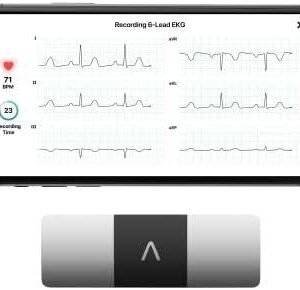In an age where our lives are intertwined with technology, the incessant buzz of notifications and the alluring glow of screens have become vital components of our daily existence. While digital devices offer unparalleled access to information and connectivity, they also introduce a paradox: the more connected we become, the more disconnected we feel from ourselves and the world around us. This phenomenon has led many to the brink of cognitive overload, sparking a widespread call for a digital detox—a conscious effort to step away from screens and reclaim our minds. In this article, we will explore the critical need for such a detox, examining the impacts of constant digital engagement on mental health, focus, and emotional well-being. Are we at risk of losing not just our attention, but our sense of self? Join us as we delve into why stepping back from our devices might be the most vital step forward for our mental clarity and overall quality of life.
Table of Contents
- The Rising Tide of Digital Overload and Its Impact on Mental Health
- Identifying the Signs: How to Recognize When You Need a Digital Detox
- Practical Steps to Implement Your Digital Detox Plan
- Rebuilding Focus and Clarity: The Long-Term Benefits of Disconnecting
- The Conclusion
The Rising Tide of Digital Overload and Its Impact on Mental Health
The incessant barrage of notifications, emails, and social media updates has created an environment ripe for distraction and anxiety. Digital overload influences our cognitive functions and emotional well-being, leading to a cycle of stress and fatigue. As we immerse ourselves in a sea of digital information, the constant need to stay connected can result in a detachment from our immediate surroundings and personal relationships. The real-time nature of digital communication often blurs the line between work and leisure, causing a compromised sense of self and eroded mental clarity. To combat this, we must recognize the signs of digital burnout:
- Increased irritability and mood swings
- Difficulty concentrating on tasks
- Heightened feelings of anxiety or depression
- Physical symptoms such as headaches or eye strain
To address these challenges, the concept of a digital detox has gained traction. This approach encourages individuals to intentionally unplug from their devices, creating space for reflection and genuine human connection. During this time, one can focus on activities that nourish the mind and spirit, such as reading, engaging in outdoor activities, or practicing mindfulness techniques. A systematic digital detox can also establish healthier tech boundaries, enhancing overall mental wellness. Below is a simple table showing potential activities to replace digital consumption:
| Digital Activity | Alternative Activity |
|---|---|
| Scrolling social media | Going for a nature walk |
| Watching TV shows | Reading a book |
| Replying to emails | Journaling thoughts |
| Playing mobile games | Practicing a hobby (painting, cooking) |
Identifying the Signs: How to Recognize When You Need a Digital Detox
In our hyper-connected world, it can often be challenging to discern whether our digital habits are enhancing or hindering our well-being. Here are some key indicators that it may be time to step back and evaluate your digital engagement:
- Constant Fatigue: If you find yourself regularly feeling drained or fatigued after prolonged screen time, it’s a signal to reconsider your digital consumption.
- Heightened Anxiety: Experiencing anxiety, especially when away from your devices or unable to check notifications, points to an unhealthy reliance on technology.
- Neglect of Real-life Relationships: Are you prioritizing virtual connections over in-person interactions? This disconnect can signify an over-dependence on digital communication.
- Difficulty Focusing: Struggling to concentrate on tasks or feeling easily distracted can result from constant digital interruptions.
To further understand your relationship with technology, consider tracking your daily habits. A quick table reflecting your screen time and its effects can provide valuable insights:
| Screen Time Activity | Duration (Hours) | Impact on Mood |
|---|---|---|
| Social Media | 3 | Stressful |
| Email/Work | 4 | Productive but Exhausting |
| Streaming Services | 2 | Relaxing |
| Gaming | 2 | Engaging |
By reflecting on these signs and keeping a record of your activities, you can start to identify patterns that suggest it’s time for a digital detox. Listening to your mental and emotional signals is crucial for maintaining a balanced and healthy life in an age dominated by screens.
Practical Steps to Implement Your Digital Detox Plan
To embark on your digital detox journey, begin by assessing your current technology usage. Keep a daily log for at least a week, noting the time spent on each device and application. This awareness will help you identify patterns and the areas that require the most attention. Once you’ve gathered insights, set clear and tangible goals to reduce your screen time. For instance, you might aim to limit social media usage to 30 minutes per day or designate specific hours where all devices are put away. By establishing parameters, you create a framework that facilitates adherence to your detox plan.
Next, implement structured breaks from technology throughout your day. Consider embracing the “Tech-Free Zones” concept, where certain areas of your home are designated for offline activities. This could be your dining area, bedroom, or even during family gatherings. Additionally, you can try programmable features on your devices that automatically limit access to distracting applications during specific hours. Here’s a table summarizing effective strategies:
| Strategy | Details |
|---|---|
| Daily Log | Track usage for a week to identify patterns. |
| Tech-Free Zones | Designate areas in your home for offline relaxation. |
| Screen Time Limits | Set app restrictions using device features. |
| Scheduled Nature Time | Plan regular activities outside, away from technology. |
Rebuilding Focus and Clarity: The Long-Term Benefits of Disconnecting
In the fast-paced world driven by technology, our cognitive functions can often become clouded by constant notifications and the overwhelming stream of information. When we take the time to step away from our screens, we allow our minds the space to breathe and reset. Disconnecting from digital distractions fosters a deeper sense of awareness and promotes clarity, which can enhance our productivity levels significantly. By focusing on our immediate environment and activities, we can develop a more meaningful connection with the present moment, which in turn nourishes our creativity and critical thinking abilities.
Furthermore, the long-term effects of a digital detox extend beyond just improved focus. Regularly unplugging opens the door to healthier habits, such as engaging in outdoor activities, nurturing relationships, and rediscovering hobbies that spark joy. These activities not only replenish our mental reserves but also strengthen our interpersonal skills. The ultimate reward is an enhanced sense of well-being, allowing us to approach challenges with a fresh perspective and renewed vigor. Consider the following benefits of disconnecting:
- Improved focus and concentration
- Enhanced creativity and problem-solving
- Stronger interpersonal relationships
- Greater emotional stability
- Increased physical well-being
The Conclusion
As we wrap up our exploration of the vital need for a digital detox, it’s clear that reclaiming our minds from the incessant pull of technology is not just a trend—it’s a necessity for our mental well-being and overall quality of life. We are living in an age where the constant barrage of notifications, messages, and updates can drown out our inner voice, leaving us feeling overwhelmed and disconnected from ourselves and the world around us.
Taking the time to unplug, even briefly, allows us to reset and reconnect with our thoughts, feelings, and the natural environment. Embracing moments of silence and stillness can lead to greater clarity and creativity, ultimately enriching our lives beyond the screen.
So, as you consider integrating a digital detox into your routine, remember that it’s not about completely abandoning technology, but about finding balance. Start small—whether it’s dedicating an hour each day to disconnect or scheduling regular digital sabbaticals. You owe it to yourself to reclaim your mind, nurture your mental health, and rediscover the beauty of living fully in the present.
Let’s make conscious choices to prioritize our well-being in this digital age. The journey to reclaiming our minds begins today—take that first step towards a healthier, more centered you.





